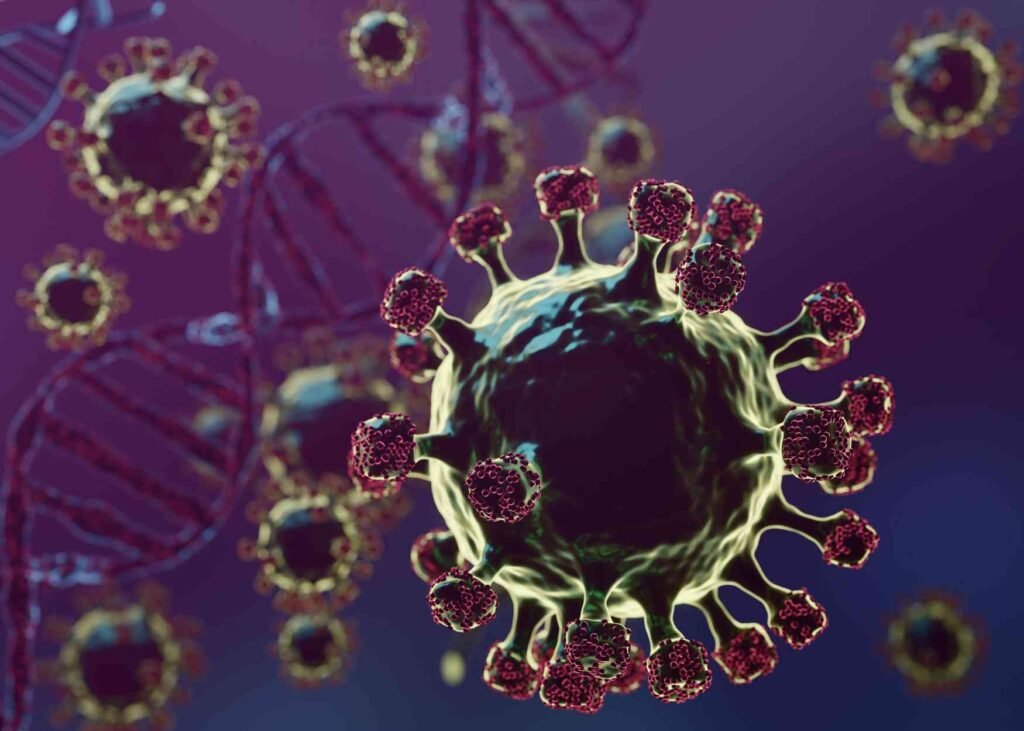How Autoimmune Diseases Affect Fertility and Pregnancy?
If you’ve ever been diagnosed with an autoimmune disease—or suspect you might have one—you probably already know how complex and unpredictable these conditions can be. But when you start thinking about family planning, a whole new set of questions can arise.
So, let’s take a deep breath and talk through what autoimmune diseases are, how they may impact your ability to conceive, carry a pregnancy, and how you can navigate this journey with confidence and support.
What Are Autoimmune Diseases?
Before we dive into fertility, let’s get clear on what autoimmune diseases actually are. In simple terms, they happen when your immune system—designed to protect you from threats like viruses and bacteria—gets confused and starts attacking your own body instead.
There are over 80 known autoimmune diseases, and they can affect almost every system in the body. Some of the most common ones include:
- Lupus (SLE)
- Rheumatoid arthritis (RA)
- Hashimoto’s thyroiditis
- Graves’ disease
- Type 1 diabetes
- Celiac disease
- Multiple sclerosis (MS)
- Psoriasis
- Sjögren’s syndrome
- Inflammatory bowel disease (Crohn’s and ulcerative colitis)

While each of these conditions behaves differently, they all involve chronic inflammation, immune system dysfunction, and periods of flare-ups and remissions.
How Autoimmune Diseases Affect Fertility and Pregnancy
Now for the heart of the matter: How do autoimmune diseases affect fertility and pregnancy?
That question doesn’t have a one-size-fits-all answer, but there are some patterns and insights we can explore. Let’s break it down into stages: fertility, conception, pregnancy, and postpartum.
Fertility and Autoimmune Conditions
1. Ovulation and Hormonal Balance
Some autoimmune diseases—especially those that involve the thyroid or pituitary glands—can directly interfere with your hormone levels. When your endocrine system is off, it can disrupt ovulation. Without regular ovulation, it becomes much harder to conceive.
For example, Hashimoto’s thyroiditis, an autoimmune thyroid disorder, often leads to hypothyroidism. If your thyroid isn’t producing enough hormones, it can delay or even stop ovulation altogether.
Similarly, polycystic ovary syndrome (PCOS), though not always classified as autoimmune, can have immune-related features and is closely associated with infertility due to irregular ovulation.

2. Inflammation and the Uterine Environment
Chronic inflammation, a hallmark of autoimmune diseases, can interfere with the uterus’s ability to support implantation. If your immune system mistakenly sees an embryo as a “foreign invader,” it may prevent it from attaching or lead to early miscarriage.
Conditions like lupus and antiphospholipid syndrome (APS) have been shown to increase the risk of blood clotting and can interfere with early pregnancy development, even before a positive test.
3. Autoimmune Response to Sperm or Eggs
In rare cases, the body can create antibodies that target sperm or even the person’s own eggs, making conception more difficult. These are called antisperm antibodies or anti-ovarian antibodies, and while they’re not common, they do fall under the broader scope of how autoimmune diseases affect fertility and pregnancy.
Conception: Planning for Pregnancy with an Autoimmune Diagnosis
When you’re living with an autoimmune disease and trying to get pregnant, planning becomes your best friend. The good news? Many people with autoimmune conditions go on to have healthy, successful pregnancies—with the right preparation and care.
1. Timing Is Everything
It’s best to try to conceive when your condition is in remission or well-controlled. Pregnancy puts extra stress on the body, so entering it during a flare-up isn’t ideal. Your healthcare provider may recommend waiting until your symptoms have been stable for at least 3–6 months before trying.
2. Medication Management
Some autoimmune medications are safe during pregnancy, while others can cause birth defects or interfere with fertility. If you’re on immunosuppressants, steroids, or disease-modifying drugs, talk to your doctor about what you can safely continue and what needs to change.
Never stop or adjust your medication without medical guidance—flare-ups can be dangerous for both you and the baby.
3. Preconception Counseling
This is a game-changer. Meeting with a reproductive endocrinologist, maternal-fetal medicine (MFM) specialist, or autoimmune-focused OB-GYN can help map out a tailored game plan. They’ll look at your disease activity, medication regimen, hormone levels, and even your partner’s health to set you up for the best outcome possible.
Pregnancy with an Autoimmune Disease: What to Expect
Pregnancy is a wild ride no matter what, but autoimmune conditions can add extra twists and turns. Here’s what you might expect, depending on your diagnosis.
1. Symptom Changes During Pregnancy
Some autoimmune diseases actually improve during pregnancy—thanks to the immune-modulating effects of hormones like progesterone and estrogen.
For example:
a. Rheumatoid arthritis often goes into remission during pregnancy.
b. Lupus, on the other hand, may stay the same or flare, particularly in the second and third trimesters.
Every body is different, so your experience will be unique. Regular check-ins with your care team are essential.
2. Risks and Complications
Because autoimmune diseases affect fertility and pregnancy in several ways, there are certain risks you may need to watch for:
a. Miscarriage or recurrent pregnancy loss
b. Preterm labor
c. Preeclampsia (high blood pressure in pregnancy)
d. Low birth weight
e. Placental issues
f. Stillbirth in severe cases (rare but possible)
This doesn’t mean these complications are guaranteed—it just means you and your doctors will keep a closer eye on things, often with extra ultrasounds and blood work.

3. Monitoring and Extra Care
High-risk OBs (also known as MFM specialists) often work alongside your rheumatologist or endocrinologist to ensure a collaborative approach. This kind of coordinated care is crucial because, as you now know, autoimmune diseases affect fertility and pregnancy in complex ways.
You may have more frequent prenatal visits, additional blood pressure checks, and even low-dose aspirin or blood thinners if you’re at risk for clotting disorders.
Postpartum and Autoimmune Conditions
After delivery, the body goes through massive changes again—hormonal shifts, healing, and sleep deprivation, to name a few. For those with autoimmune conditions, this can sometimes trigger a flare-up.
1. Flare-Ups After Birth
Conditions like lupus, RA, and MS may become more active in the months following delivery. It’s important to schedule a postpartum plan with your provider that includes symptom monitoring and medication reviews.
2. Breastfeeding Considerations
Many medications for autoimmune diseases are safe during breastfeeding, but not all. Be sure to have a clear plan before your baby arrives so there’s no last-minute guesswork.
Breastfeeding itself may be protective in some autoimmune conditions, but again, this varies case by case.

Emotional and Mental Health Support
Let’s take a moment to talk about the emotional toll this all can take. Trying to conceive, being pregnant, and becoming a parent is already a vulnerable journey—and adding an autoimmune disease into the mix can sometimes feel like carrying an invisible load.
It’s okay to feel scared, anxious, hopeful, overwhelmed, and excited—all at once. What matters most is having a strong support system, including:
a. A knowledgeable and compassionate medical team
b. A partner, friend, or family member you can lean on
c. Access to mental health professionals, especially those who understand chronic illness
Success Stories and Hope
Here’s the good news: Millions of people with autoimmune conditions have healthy pregnancies every year. Medical care has come a long way, and awareness around autoimmune fertility issues is growing fast.
Whether it takes time, fertility treatments, or a whole team of specialists, there is so much hope. This journey might not look how you pictured, but that doesn’t mean it can’t be beautiful.

Final Thoughts
Autoimmune diseases affect fertility and pregnancy in a variety of ways—but with the right knowledge, planning, and support, many people with autoimmune conditions go on to have healthy, thriving families.
Your path might come with some extra steps, but those steps are not roadblocks—they’re just part of your unique story.
Whether you’re in the early stages of wondering if parenthood is possible, actively trying to conceive, or already pregnant with an autoimmune diagnosis, know that you’re not alone, and your journey is valid.


